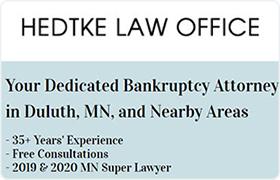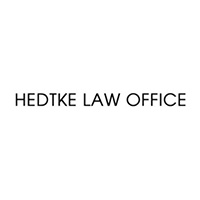Gilbert Collection Lawyer, Minnesota
Sponsored Law Firm
-
 x
x

Click For More Info:
-
Hedtke Law Office
1217 E. 1St Street Duluth, MN 55805» view mapBankruptcy & Debt Sensible Debt Solutions
Hedtke Law Office is here to answer your questions and guide you through the bankruptcy process. We work to help you reduce your debt while keeping your personal property.
800-887-8940
Not enough matches for Gilbert Collection lawyer.
Below are all Gilbert lawyers.
Mary Irene Johnson
Divorce & Family Law, Child Custody, Family Law
Status: In Good Standing Licensed: 32 Years
Angela Erickson Sipila
Landlord-Tenant, Litigation, Family Law, Elder Law, Divorce & Family Law
Status: In Good Standing
Joseph F Leoni
Mass Torts, Litigation, Labor Law, Discrimination, Personal Injury
Status: In Good Standing Licensed: 40 Years
Joseph Leoni
Litigation, Labor Law, Wrongful Death, Personal Injury, Car Accident
Status: In Good Standing
Andrew Robert Peterson
Real Estate, Divorce, Criminal, Accident & Injury
Status: In Good Standing Licensed: 23 Years
James R Cope
Mediation, Lawsuit & Dispute, Criminal, Accident & Injury
Status: In Good Standing Licensed: 37 Years
 John Hedtke Duluth, MN
John Hedtke Duluth, MN Practice AreasExpertise
Practice AreasExpertise
